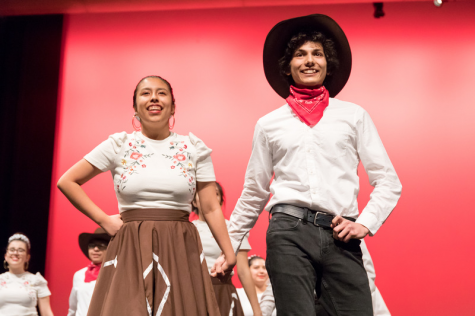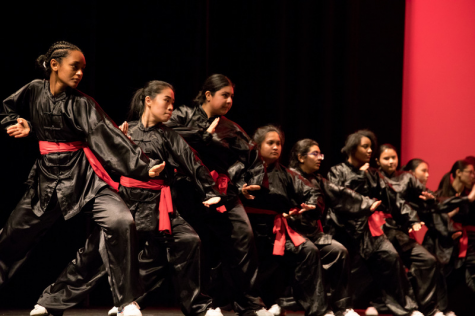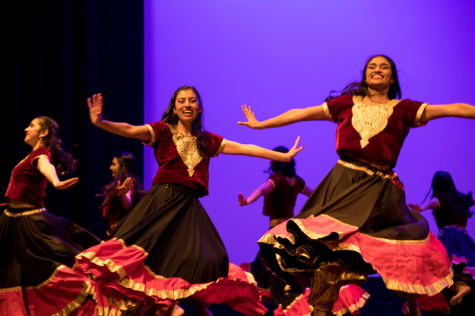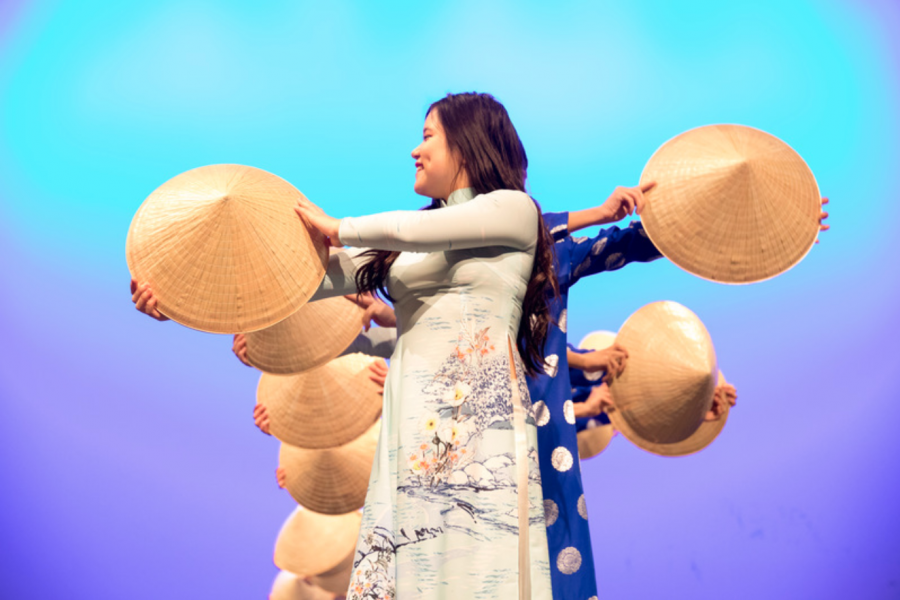Virtual Dance Clubs
February 22, 2021
Months have passed since the first day of school. Several Northside annual events were held virtually to accommodate remote learning. The school’s open house was held through Google Meets. Clubapalooza is traditionally afternoon dedicated to learning about the different clubs Northside hosts. Instead of being held in the Northside hallways, it was done through a simple Google form and spreadsheet. The current situation calls for several changes in Northside’s annual events, and, with uncertainty surrounding whether or not students will be back in the building this school year, it is unclear if upcoming events will still be held.
Among these events is I-Day/I-Night, an event that features Northside’s dance clubs performing for fellow students during the school day and for their families in the night. I-Day is a celebration of Northside’s diverse cultures and allows dance clubs to showcase their hard work throughout the year. However, as remote learning continues, where do dance clubs stand in all this? How exactly are these clubs practicing from home? How do they feel about the possibility of I-Day being cancelled?
 The sponsors and club leaders of the Polish and Hypnotik dance clubs share their thoughts and experiences with the novel situation.
The sponsors and club leaders of the Polish and Hypnotik dance clubs share their thoughts and experiences with the novel situation.
Both Hypnotik and Polish Dance meet biweekly during the designated extracurricular times on Colloquium days. Each club has two leaders who are tasked with planning for each meeting. While both are essentially dance clubs, they tackle the computer screen barrier in different ways.
Eliza Trojan (Adv. 201) and Zuzanna Kawula (Adv. 104) are the club leaders of Polish Dance. Trojan says, “Since we cannot dance together, we try to explore other aspects of polish culture.” In the beginning of the school year, the Polish club leaders sent out a survey to their members to gauge their areas of interest in Polish culture. Trojan says their meets now consist of “a presentation based on a pre-chosen topic ( ex. Food, History, Cities) and then [we] discuss together, watch videos, or play kahoots.”
The Hypnotik dance club has taken a different approach. Continuing to focus on the dance aspect of the club, they have been creating and dancing to choreographies, sending videos of themselves dancing at home to the club leaders for feedback,
“I mean, they’re not necessarily dancing together, you know, like they would be in [person]… So they’re having to kind of look at it and then maybe give some feedback, based off the video, and sometimes that’s hard to see too, based off angles and things like that,” says Coach Adrienne Cirrincione (C), the sponsor of the Hypnotik club.
Michael Adeyemi (Adv. 203) and Ebenae Bekoe (Adv. 203) are the club leaders for both the Hypnotik and Uzuri Wa African dance clubs. Adeyemi says that for both clubs “there’s an obvious drawback for the members; ‘I don’t wanna submit something that they’re gonna have forever.’ Whereas, in person it’s more … ‘You won’t see me after this.’ I feel like there’s a difference in vulnerability when we have it in person too.”
While the clubs have taken different approaches to the way they conduct the club in a remote setting, they share similar feelings about the situation.
Coach Samantha Zalewski (Z), the sponsor for Polish Dance, says that “the largest difference is that they—I hate it cause I’m a PE teacher, right—they’re staring at a screen and they’re not moving around, dancing like they normally would.” According to Coach Z, on a normal in-person school day, they would “come in at like 7 AM in the morning before school starts, they get their dancing in, and then they’re done. Whereas now, we’re sitting there listening [and] talking—things of that sort.”

Coach C shares a similar sentiment: “It definitely makes a huge difference, cause they’re not able to really dance together, right?… A lot of times, even if they did try and do that, there’s lag in the computers and, as I’m sure you know… some of the computers get wonky.”
There is also the issue of enrollment, as Coach Z expressed in the interview: “We do try to recruit every year. This year, I think we only have one freshman compared to last year when we had 5 or 6, but they do realize that when their numbers dwindle, they have to go out and recruit. So they do try to recruit [be]cause Polish dance isn’t that popular if you don’t know anything about it.”
Clubapalooza was held through a spreadsheet list of clubs and students were provided with a Google form to indicate which club(s) they joined. Since the event was held virtually this school year, freshmen have not had the chance to see these clubs practice and perform in person.
However, despite all the cons of coordinating dance clubs virtually, the club leaders say that there are some perks that have come out of it.
Trojan says that “[being] able to expand beyond dance, provide[s] a sense of community/togetherness during online school, and some days when we finish early we all get time to simply talk with each other (about various topics) and it makes school feel a little more normal.”
“[An] issue is that the same environment that we have … our classrooms in, it’s the same environment that we have our clubs in … so we try to make it as informal as possible. So we will ask, ‘how are you doing?’ We will have side conversations and things like that to break the barrier of ‘we’re just on Google Meets and we’re separated,’” says Adeyemi.
The club leaders of both clubs try their best to keep their cameras on for every meeting. They do not require members to have their cameras on and respect the members’ decisions either way.

“Every meeting is different, some days there is a whole screen of faces, somedays a whole screen of icons. I wouldn’t say there are any issues, as most people are respectful and interactive regardless of whether or not they have their camera turned on,” says Trojan.
Adeyemi says, “It’s up to you. Whatever makes you feel comfortable, because at the end of the day, we’re a family and I want us to be able to engage with each other in the most comfortable and welcoming space possible.”
Now that everything is being held virtually, some dance clubs now have their own Google Classroom page. According to Bekoe, having Google Classroom is “the biggest pro, and being able to create assignments and things like that … When we’re meeting in person, for that week, you might forget something and then not [do it]. The Google Classroom is … a big help.”
While organizing and overseeing a dance club virtually has presented several obstacles, the club members, leaders, and sponsors have worked hard to make things run the best they can.


